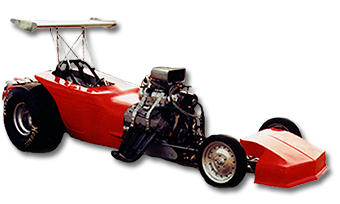They say nothing in life is certain except for death and taxes. In most parts of the world, taxes are part of life and part of running a motorsports business. In the US, large expenses associated with running an engine building business are federal, state and local taxes. This article will focus on the United States tax system, but similar ideas may be applicable to similar businesses in other countries as well.
One of the largest advantages to the US tax system is that profits are taxed after expenses are deducted.
This means that most expenses associated with building or running your business do not get taxed. Smaller businesses may only require a sole proprietorship, but larger businesses may require a corporation.
Sole Proprietorship
For tax filing purposes, a sole proprietorship is the simplest form of business. It can consist of a single person or a married couple. Annual accounting is required, and the owner is liable for all taxes. Profit should be shown for a minimum of two out of five years. Retirement contributions and medical expenses are usually not part of business expenses and are done according to personal 1040 tax filing rules.
In basic terms, the following formula is used for calculating business taxes:
Gross sales – cost of sales – business expenses = Net profit
that is put on your US 1040 tax return.
Examples of gross sales would be racing winnings, sponsor contributions, payment for your services to other racers, and racing parts sales.
Cost of sales is from inventory that was sold. Added inventory is not deductible for that year. It is carried over to next year.
Business expenses would be items such as the investments needed to operate your business. Motorsports examples would be racing fuel, spark plugs, and other engine parts. They can also include the cost of your garage space or shop rental.
A motorsports business can be set up that is independent of your main source of income such as W2 income from employment. In early years of a motorsports business, cost of sales and business expenses often exceed motorsports income. That can be used as a deduction on your tax return. My accountant said the effort has to be reasonable. For example, it you made $100 at a race and want to deduct a $10,000 racer, that would not look reasonable. If you made $5,000 racing and want to deduct $6,000 for an operating loss of $1,000, that would be more reasonable. What you do is dependent on record, receipts, 1099’s, and other proof of business.
Business liability for many cases is attributable directly to the owner.
Once the business reaches a larger volume of sales transactions, a sole proprietorship is not ideal for operating purposes, liability, nor for tax purposes.
Our next tax article provides more information about the next step.
